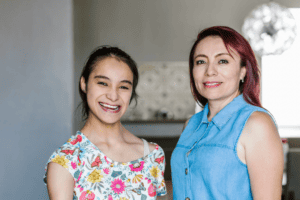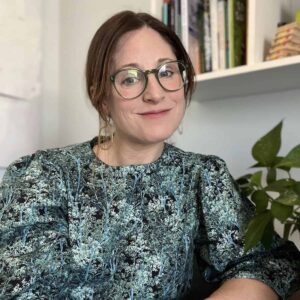When the language keeps changing, how do we keep up? And how much does it matter anyway?
The answer is: it matters a lot. How we talk to and about people tells them how we feel about them. And when we’re talking about children we love and care for, this means everything.
When we say “a child with special needs”, or “a child with a disability,” we’re using person-first language.
Person-first language gained popularity among communities that support people with disabilities because it was viewed as an acknowledgement that people are not defined by their disability or limited to their diagnosis. But we were so worried about our loved ones being defined by their disability that we forgot to ask them how they saw their disability.
It turned out that sometimes we guessed wrong.
Many disabled people say the disability is not inside of them: they are not a “person with a disability.” Rather they are a “disabled person.”
This is identity-first language. This describes someone who wants to be valued as a disabled person. Their disability is not all of who they are, but it is a really important piece of who they are.
This describes someone who is disabled by a world that does not allow them to participate and flourish. The problem is the surroundings – not the disability.
As parents, when we think of our children, the image that is conjured up in our mind is a laugh, a unique facial expression, or a slight shifty eye. It is a love of Pez candy or tight bear hugs at night. It’s what we know. If we are non-disabled parents, our experience of disability is not personal, we don’t know it from our own lived experiences so we must look to the experts to learn more. The true experts are disabled people.
Lydia X. Z. Brown addresses this question on her blog, Autistic Hoya :
“How should I refer to people affected by Autism? Depends on whom you ask! Some of us prefer the terminology Autistic person or Autistic, whereas other people prefer to say person with autism. Still others use the more neutral person on the autism spectrum. The philosophies and beliefs behind the arguments for these terms center around the social and attitudinal implications of the language. People who prefer Autistic tend to see Autism as an important and defining aspect of the person’s identity, whereas people who prefer ‘person with autism’ tend to see autism as something that should be mitigated as much as possible and that does not impact the person’s identity on that fundamental level.”
At Exceptional Lives, our goal is to practice and champion inclusiveness in all of our work.
We listen to our community to learn how we can support one another. This is a fundamental value of Exceptional Lives. It is our mission to support families and caregivers of children with disabilities. If we want to do this work effectively, we must do it respectfully. We have to listen.
ELI celebrates neurodiversity and we believe our language should reflect this.
We use person-first language when we refer to disability (for example, ‘child with a disability’), but we follow the lead of self-advocates when it comes to Autistic and Deaf culture by using identity-first language. In making this decision, we’ve learned from experts like LaMondre Pough who states, “The community sets the standard as to how they want to be addressed.”
(If you’re a regular reader of our blog, you’ll see that some of our older posts don’t reflect this. We chose to leave those as they are to reflect that this is a learning process for us too).
At Exceptional Lives, we will continue to talk to and learn from one another as we grow. Our language helps to make a difference in our communities and ultimately create a more inclusive place for all of us. Join us.
Read more about Exceptional Lives values and commitment to equity and inclusion.




